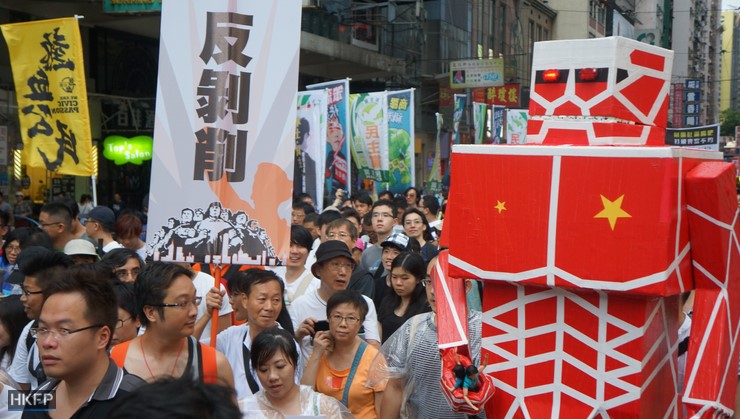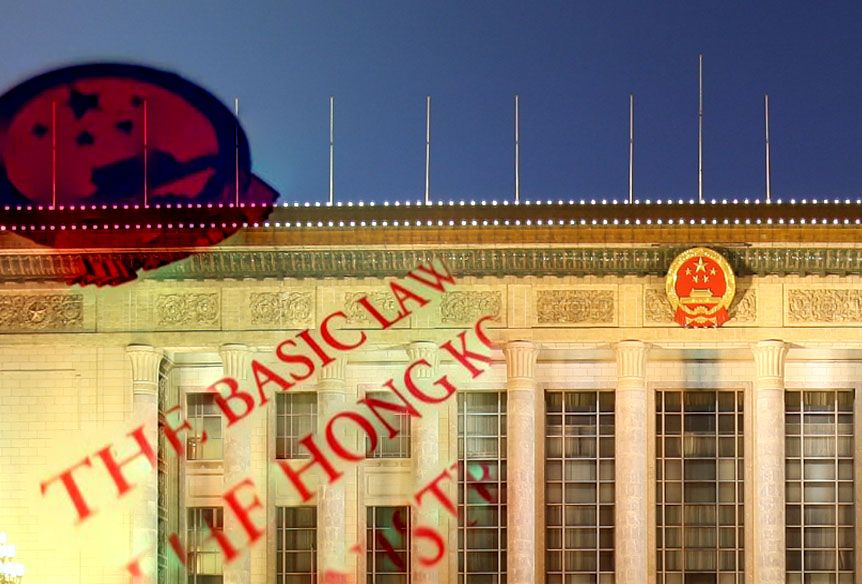Why does the Communist Party continue operating illegally in Hong Kong? That, of course is not how this question is posed by the usual gaggle of sycophants who have recently been suggesting that it would be a good idea to find a way of openly establishing the party’s presence in the SAR.
The key word here is openly because, in reality, the party has been operating underground in Hong Kong since 1920 but why now, in 2018, is there a sudden interest in bringing the party above ground?

This question is not easy to answer because changes of policy in these matters are usually signalled from up North either indirectly via stories appearing in the state media or through speeches given by so-called independent experts. The direct method of signalling change is unambiguous as it comes via statements by state leaders or orders handed down in written form.
However, all these sources have been silent on the matter yet there is a rumble of noise emanating from the pro-government camp and the tame posy of journalists who trail in its wake. Maybe this is no more than a case of various individuals trying to prove that they are the truest of true believers who will always go that extra mile to demonstrate their loyalty.
Or maybe secret orders have indeed been issued to prepare the ground for the emergence of the local Communist Party from its many hiding places.
All that is known in the public domain is that there is increasing talk of Hong Kong’s own constitution being no more than an adjunct to the PRC’s constitution which clearly states that China is a socialist state. In 1993 the constitution was amended to make clear that “The system of multi-party cooperation and political consultation led by the Communist Party of China will exist and develop in China for a long time to come.” Subsequent amendments have added substance to the Party’s central role and leadership of the nation.
The problem, therefore, arises as to how square these constitutional requirements with Article 5 of the Basic Law which clearly states that ‘the socialist system and policies shall not be practised’ in Hong Kong.

The various Mainland ‘legal experts’ who have been wheeled out to stress that Hong Kong’s Basic Law can never be anything other than subservient to the national constitution do not even make an attempt to tackle this contradiction.
Into this void steps suggestions that a way of bridging the gap could be achieved by having the Communist Party openly operate in the SAR, much as it does across the border. The aim is to try and get the people of Hong Kong more used to seeing the party in their everyday lives and to recognize its centrality.
But the habits of secrecy and deception are hard to shake off because they have prevailed since the forerunner of the local party, the miniscule Marxism Research Group, was established in 1920. This laid the ground for an elaborate framework of front organizations covering trade unions, schools, neighbourhood associations, social clubs, publications, bookstores and even sporting clubs. In other words, the Hong Kong Communist Party developed on classic Leninist lines, which is hardly surprising because the mother party on the Mainland owed its organizational structure to work undertaken by emissaries from the old Soviet Union who dictated much of what happened in the crucial early years of the Chinese Communist Party.
And although the party was never much of a mass organization in Hong Kong it had influence far beyond its relatively modest membership. Its finest moments came during the Japanese invasion of Hong Kong when the Communists formed the core of both the armed and passive resistance to the occupiers. It’s lowest and most infamous moments came during the Cultural Revolution-inspired riots of the 1960s causing vast disruption and loss of life.
Throughout its existence, the party has carefully avoided using its real name and operated under the umbrella of the Hong Kong and Macau Work Committee of the Chinese Communist Party, although even this name was never openly acknowledged. In the early days, control came from Guangdong party officials. The central government, working through the New China News Agency, then stepped in and nowadays it is widely believed that the local party’s affairs are directed by the more shadowy Chinese officials in the Central Government Liaison Office.

There are many, many problems involved with bringing the party into the light of day and this may explain why it will not happen. Not least of these problems involves how to handle the effect that transparency will have on the internal workings of the now very substantial front organisations such as the DAB, Hong Kong’s biggest party. It has become a massive vessel for opportunists and place seekers who have little ideological knowledge or interest for that matter. But behind them stand a hardcore of real Communists who joined the party for ideological reasons and most definitely not for the purposes of personal advancement. Some of the old guard are still very much around but what happens if they are identified, particularly when it becomes clear that they are the real leaders unlike the rabble of opportunists who have clambered aboard the front organisations.
Then there’s the problem of how to legalise the Communist Party in Hong Kong without also allowing other political parties to obtain legal status. As matters stand there is no provision in law for political parties and those that exist function under the aegis of company law. This absurd situation was devised by the British as a way of ‘not politicizing’ Hong Kong. It has failed in this objective, leaving unsatisfactory ambiguity in its place.
So, will the Hong Kong Communist Party ever come blinking into the daylight?
